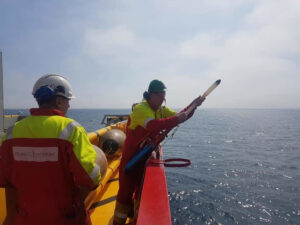Autonomous and remotely controlled vehicles are expected to grow in the future. The use of Automated Guided Vehicles (AGVs), robots and autonomous or remotely controlled mobile equipment is becoming more significant.
To respond effectively to the needs of this constantly evolving market, some training structures have put in place high quality courses to train and prepare workers for this changement.
Training is necessary to achieve improvements in work performance, particularly in smart facilities and to manage or supervise autonomous systems and remotely controlled vehicles.
In order to identify several safety risks, prevent and to act to avoid a crash, some training structures have implemented specific training courses.
Among these organizations, ANCORS stands out, engaged in the health and safety training sector in Italy and in other countries, has developed a specific course to improve knowledge in the smart maritime transport sector. Thanks to international standards and guidelines, ANCORS has developed a cutting-edge course on the safe use of autonomous technologies, to increase an individual’s skill and improve the workers or managers level of awareness on the use of automated guided vehicles and materials handling robots.
Autonomous vehicles operate in collaborative mode (human-machine) or co-working. Usually, systems don’t necessarily replace human task, but complement it.
The co-working and collaborative activity between humans and automated or remotely controlled systems are evident in the logistics industry and in terminal container where the human operator interacts with the Automated Cranes (ACR) during sensitive tasks. A co-working activity enhances productivity of human labor.
In order for companies to benefit from the collaboration between humans and autonomous systems and robots, specific training courses are necessary to eliminate dangerous situations for humans.
Paolo Mazzone
SubEng – HSE Adviser
Image
Cover: Lines photo created by vanitjan – www.freepik.com

